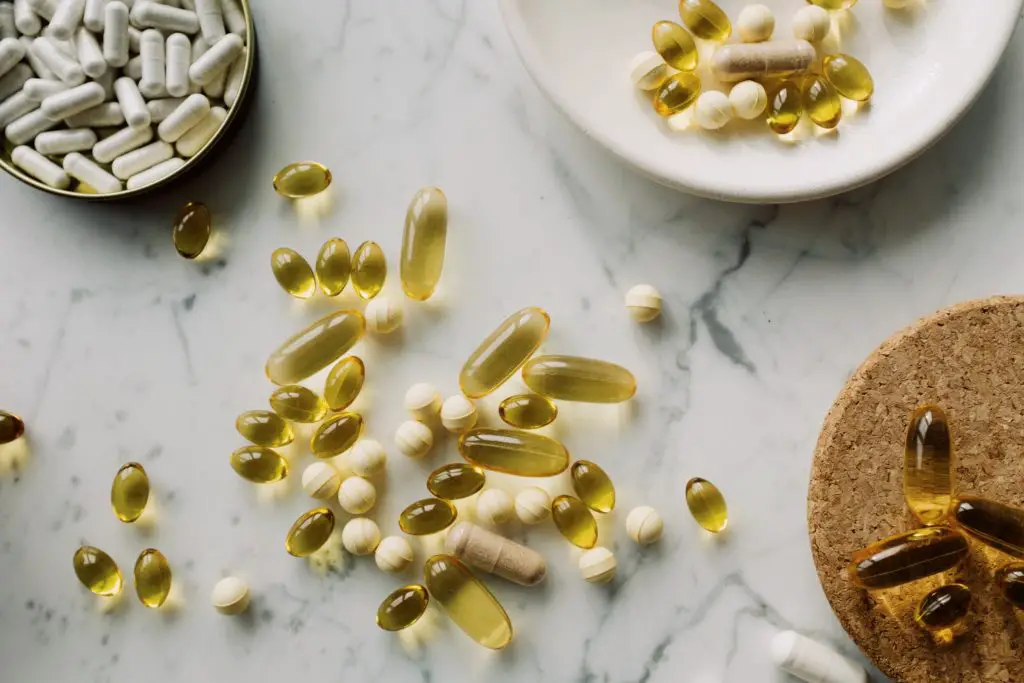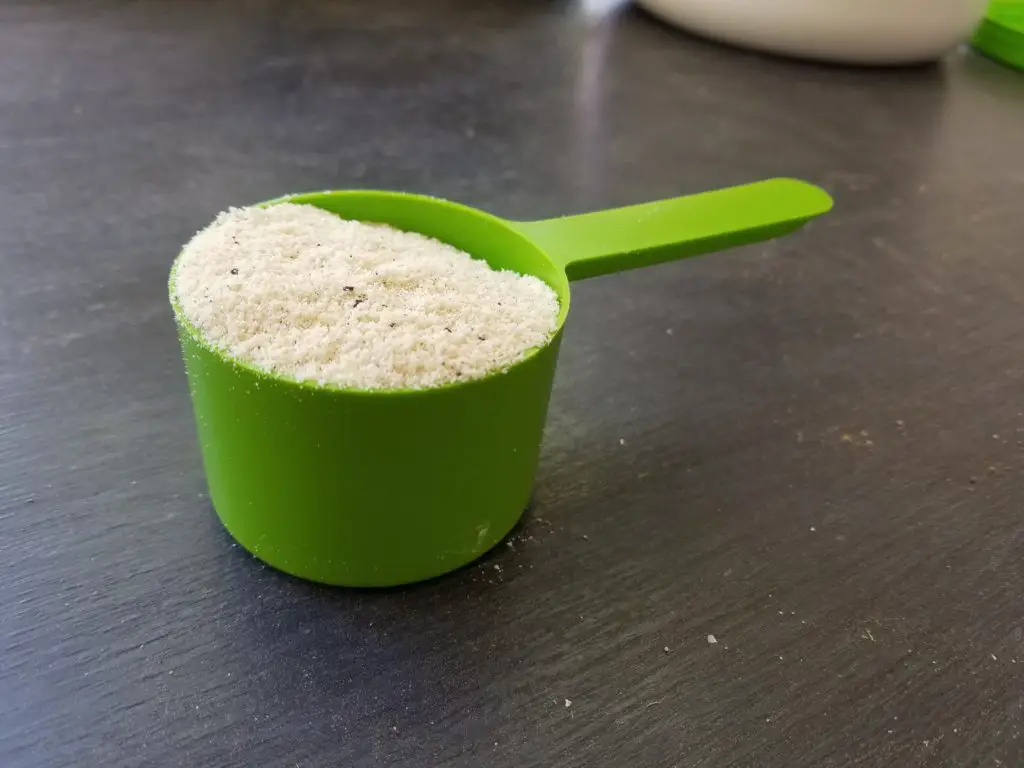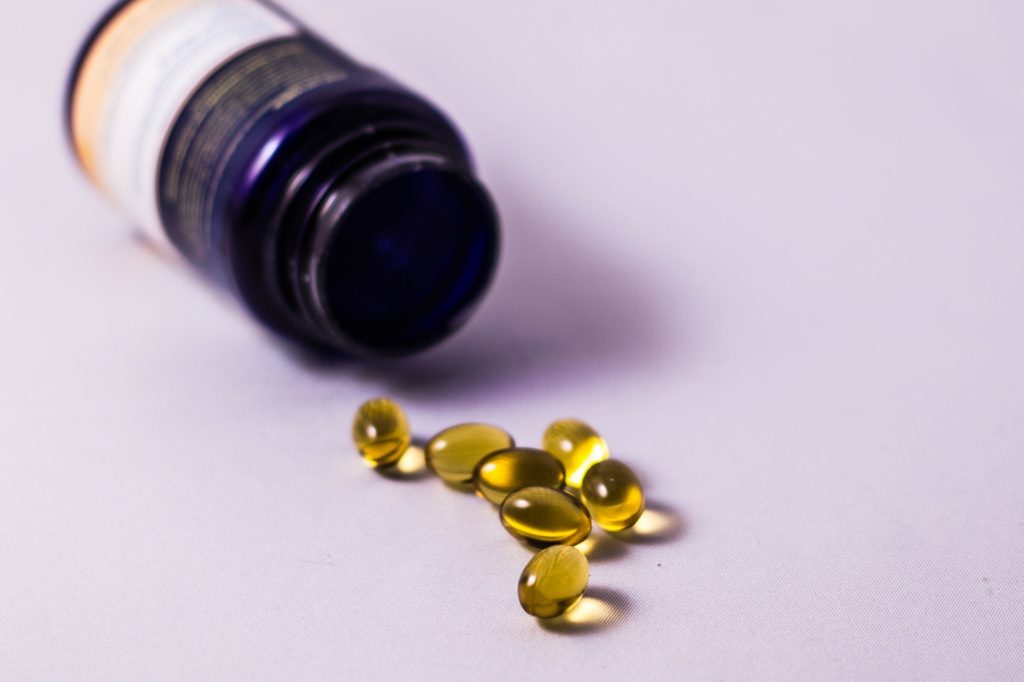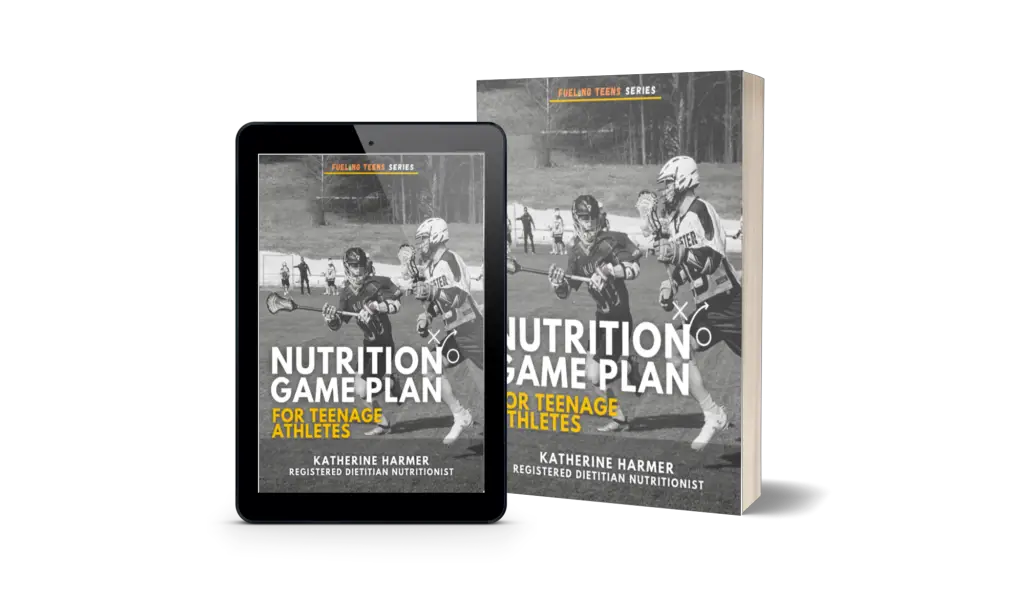Need that competitive edge to boost your athletic performance? Many athletes try workout supplements to aid their gains in strength, power, endurance, and recovery. Exercise supplements can be tempting, especially when there are so many that are easily available, affordable, convenient, and promise appealing results and improvements.
Most workout supplements are not recommended for consumption by teenage athletes. A well planned, high-quality diet is better than supplements. However, high-quality protein powders, creatine, collagen, and other supplements can be recommended to some individuals with the guidance of an experienced trainer and medical professional.
Keep reading for a list of the most common workout supplements among teenage athletes, their risks, benefits, and overall recommendations.

Should Teenage Athletes Take Supplements?
Supplements aren’t regulated by the FDA. It can be difficult to know exactly what you are buying when choosing supplements. Teenagers are at such an important period of growth and development, and taking unnecessary supplements with potential contaminants and unsafe ingredients could cause more harm than good.
Overall, I am hesitant to recommend supplements for most teenagers as the safety, efficacy, and benefits are often unknown in adolescent athletes. A well-balanced diet is almost always better than supplements for most healthy individuals, however, individual circumstances may require a supplement. Vegans, vegetarians, and individuals with health issues are among those who may benefit from a specific supplement. If you think you would benefit from a supplement, be sure to talk to your doctor or a registered dietitian before making changes to your diet.
What Supplements Should High School Athletes Take?
Most supplements are intended for healthy adults and could be harmful for a teenager still in their critical years of growth and development.
Teenagers will likely see more athletic improvement (muscle size, strength, power, endurance, overall skill and consistency etc.) through growth and regular practice than from unnecessary supplements. Most high school athletes do not require supplements, they will likely not improve your skills as much as regular training for your sport and a healthy diet.
However, many high school athletes still take supplements. The most common supplements that teenagers use include protein powders, creatine, BCAAs, and caffeine.
I’ve put together this helpful table with details on the most common supplements for teenagers. This will help you get an idea of what each supplement is, the intended effects of taking it, any risks/side effects, and overall tips for teenagers interested in taking a specific supplement. This table includes a quick summary. More specific details of each supplement are below the table.
Popular Supplements for Teenage Athletes:
| Supplement | What it is | Effects | Risks | Tips |
|---|---|---|---|---|
| Protein Powder | Usually whey, soy, or casein in powder form. | Promotes muscle growth and post-exercise recovery. | Nausea, diarrhea, bloating and upset stomach. Harmful in large doses. | Consume high-quality protein foods instead. |
| Creatine | Comes from protein-rich foods, also made in the body. | Improves strength and power. | May cause gut problems, dehydration, cramps, nausea, and some weight gain. | May not be safe for growing adolescents. Eat a balanced diet to get creatine from food instead. |
| Caffeine | Natural stimulant that comes from a plant or produced artificially. | Reduces fatigue and improves power and endurance. | High doses cause trembling, heavy sweating, dizziness, vomiting, increased heart rate, and anxiety. Toxic in large doses. | Possible benefits may not outweigh the consequences. |
| BCAAs | Specific amino acids that naturally occur in protein foods. | Muscle growth, fat loss, delays fatigue, and boosts immune system health. | Conflicting research on effectiveness of BCAAs supplements. | Not recommended for teens. It’s better to eat a variety of high-quality protein foods. |
| Sodium Bicarbonate | Baking soda | Improves performance and reduces fatigue during high intensity events. | May cause gut problems | Possible benefits may not outweigh the consequences. |
| Nitrate | Molecule from vegetables and produced in the body. Commonly consumed as beetroot or spinach supplement | Improves exercise tolerance and performance in endurance exercise | May cause gut discomfort and discoloration of urine. May not be effective in elite athletes. | Not typically recommended for teenagers. |
| Collagen | Body protein for structure and support. | May support strong bones and joints for exercise and speed up recovery time for injuries. | Could cause allergic reactions for some individuals, gut discomfort, and heartburn. | Choose food sources high in collagen like meat, fish, bone broth, eggs instead of a supplement. |
| HMB | Chemical produced by our bodies and found in foods. | To increase muscle size/strength and improve recovery. | Research is insufficient | Limited data on safety and effectiveness. Use with caution. |
| Pre-Workout | Mixture of multiple supplements | Increase endurance, energy, strength, and focus. | May contain unsafe substances and unclear dosage | Know exactly what is in supplements you take. |
Keep reading for more detailed information and tips on each of these supplements and overall recommendations.

Protein Supplements
Protein is a popular supplement these days to promote muscle growth, post-exercise recovery, weight loss, and more. But guess what? You do not need extra protein from protein powders or protein bars to build muscle or lose weight! 99% of high school athletes likely get enough protein from their regular diet, so you are likely just wasting money by buying your big tubs of protein powder. Your body can’t store extra protein for later use, so it’s most important to eat enough protein at regular intervals throughout the day. Protein supplements may be helpful for some individuals, but getting high-quality protein through foods is better.
Protein supplements come in many forms as powders, drinks, or bars. Whey protein is the most popular type of protein powder. There are even high-quality vegan protein powders available as well.
Be aware- protein supplements are popular, but many athletes take too much protein powder and overload their body with too much protein that can’t be stored for later use. The more protein, the better, right? Wrong! Protein supplements can cause nausea, diarrhea, bloating and an upset stomach. Certain protein powders are harmful in large doses and could be unsafe in adolescents. Some protein powders have even been found to be contaminated with harmful substances.
Protein powders can be expensive and aren’t necessary, but they can have a place in your diet with a proper plan. If you find it difficult to consume protein at every meal and snack regularly throughout the day, a protein supplement or protein bar might be helpful. Protein powders often contain extra, unnecessary ingredients such as added sugar, artificial sweetener, thickeners, flavors, colors, and other ingredients. Try to choose a protein powder with simple ingredients and little or no sugar.
Tips– Get protein through high-quality foods instead of protein powder or drinks. Protein smoothies are pretty popular, but you can make your own with just as much protein as a scoop or two of protein powder. Make your own fruit and veggie protein smoothie by using some Greek yogurt, nut butter, seeds (such as chia seeds, flax seeds, pumpkin seeds, etc.), frozen fruits and veggies, and lowfat milk for a healthy protein boost.
Also be sure to check out my post on whey protein for more details and tips: Is Whey Protein Safe for Teenage Athletes?
Creatine
Creatine is another popular supplement. Your body makes some creatine and you can get it from protein-rich foods as well. Creatine in your body helps improve high intensity exercise for quick bursts of power with less rest periods. It helps athletes become stronger, quicker, and more powerful. Creatine can also help increase muscle protein synthesis.
Taking creatine can be beneficial for vegetarians or vegans, but not all individuals respond to creatine supplements. It can also cause gut problems, dehydration, cramps, nausea, and weight gain.
Tips– With the research available, creatine may not be safe for growing adolescents. Teenagers will likely see more athletic improvement through growth and regular athletic training than from creatine. A balanced diet can help you get enough creatine from food instead of supplements.
It can be difficult to find high-quality creatine products with the appropriate amounts or forms of creatine. If you do take creatine, take a high quality creatine monohydrate form and never take more than 3-5 grams per day.
Be sure to check out my post about creatine supplements and safety for more info and tips: Is Creatine Safe for High School Athletes?
Caffeine
Caffeine is a common performance aid intended to reduce fatigue and sustain high intensity exercise for a longer duration.
But even caffeine has some risks. High doses can cause trembling, increased heart rate, heavy sweating, dizziness, vomiting, and anxiety. Caffeine is toxic in large doses and some caffeine supplements are unclear on caffeine amount and may contain other unsafe ingredients.
The bottom line– check competition rules as large doses of caffeine may not be allowed. Possible benefits may not outweigh the consequences of regularly taking caffeine to aid performance.
If you’re interested in caffeine drinks and other sports drinks, be sure to check out my post for more info: Should Football Players Drink Gatorade?
BCAAs Branched-Chain Amino Acids
BCAAS, or Branched-chain amino acids, are made up of 3 important amino acids- leucine, isoleucine, and valine. Taking a supplement of these amino acids is intended to help with muscle growth, fat loss, delaying fatigue, and boosting your immune system.
Tips– There is conflicting research on the effectiveness of taking BCAAs as a supplement versus getting a variety of amino acids through protein foods for athletic performance and recovery. Overall, BCAAs are not recommended for growing teenagers. A balanced diet with well-planned protein intake (15-30 grams of protein at every meal and snack throughout the day) is more beneficial than a supplement.
Sodium Bicarbonate
Sodium bicarbonate may sound familiar, it’s more commonly known as baking soda.
You may be familiar with lactic acid. With exercise, lactic acid builds up in your muscles and with high intensity exercise this can disrupt your body’s pH and lead to fatigue earlier. The goal of sodium bicarbonate is to restore your body to an optimal pH to reduce fatigue and improve performance for high intensity events.
Not all research agrees that sodium bicarbonate is beneficial for athletes. Benefits vary in each individual and may depend on other factors such as training, activity level, gender, etc. Taking it may also cause gut problems that can cause more harm to performance than overall benefit.
Tips– Overall, taking sodium bicarbonate should be evaluated on an individual basis. The possible benefits may not outweigh the consequences.
Nitrate
Nitrate is found in vegetables such as beetroot, arugula, or spinach. Your body turns it into nitric oxide which increases blood flow, reduces oxygen needs, and helps boost athletic tolerance and performance in endurance exercise.
Tips– Research is ongoing, but nitrate is one of the most popular supplements, however, there are still risks to be aware of. Consumption may cause gut discomfort and discoloration of urine. Nitrate supplements may not be effective in elite athletes. Consumption is not typically recommended for teenagers.
Collagen
Collagen is a structural protein that makes up connective tissue in your body. Your body produces it to strengthen body tissues and provide structure and support.
Collagen is a popular supplement to support strong bones and joints for exercise. It can also benefit athletes who are injured for a faster recovery time. Risks include allergic reactions for some individuals, unpleasant taste, gut discomfort, and heartburn.
Tips– If you are interested in taking collagen supplements, it’s likely more beneficial to choose high quality protein and collagen food sources to increase collagen production in your body. Examples include meat, fish, bone broth etc. Vegan and vegetarian athletes may benefit from supplementation, but collagen supplements are derived from animals or fish and are not vegan. It is important to plan a well-balanced diet to boost your body’s production of collagen.
HMB
Hydroxymethylbutyrate, or HMB is a chemical naturally produced in our bodies and in some foods. It is commonly taken as a supplement to increase muscle size and strength, reduce exercise-induced muscle damage, improve exercise performance, and improve recovery.
Tips– Current research is insufficient to give specific recommendations for use and consumption of HMB supplements, especially for adolescents. There is limited data on the safety and effectiveness of HMB supplementation in individuals younger than 18. This is not a recommended supplement for adolescents, use with caution.
Pre-Workout
This is popular among body builders, simply called “Pre-Workout supplement” it is typically a mixture of caffeine, creatine, and more. It is commonly taken to increase endurance, energy, strength, and focus for a workout. New versions have been formulated every few years, but some of these have been banned by the FDA because of adverse health effects.
Tips– Make sure you know exactly what is in the supplements you are taking and be familiar with dosage. Versions of “Pre-Workout” are not recommended for teenage athletes.

How and Where to Buy Workout Supplements
You can get many types of affordable supplements online from places like Amazon, or even in your local grocery stores. It’s important to note that supplements are not regulated and could contain unsafe ingredients and dosages. Be careful when you buy supplements. You are likely just buying over-priced and over-marketed supplements.
If you are going to buy supplements, carefully read the labels and ingredients. Some supplements are tested by 3rd party independent laboratories to back up label claims, and contain a logo such as NSF International. These are a safer type of supplement to buy.
Summary
Supplements are only likely to help if a teen is already eating a well-balanced diet and is still lacking something specific. Most supplements would likely only bring small athletic improvements, and the possible health risks do not outweigh the benefits in adolescents. Teenagers are under intense pressure in their sport, and may try to gain any type of competitive advantage from supplements. Winning is not more important than good health. A high school athlete’s efforts and money are better spent focusing on diet, exercise, and appropriate training to achieve athletic goals.
You should only take supplements when recommended by a doctor if you are deficient in a certain nutrient and cannot get enough through food.
If you still feel like you need a supplement to help you feel like you are gaining that “competitive edge” and boosting your training and nutrition, a simple whey protein powder (click to view an example on Amazon) without other additives (sweeteners, flavors, colors, fillers, etc.) could be an appropriate choice as long as your serving size only contains about 15-30 grams of protein.
Related Questions
Is Creatine Allowed in High School Sports? Creatine is legal for high school sports, but double check with local school athletic rules. The use of creatine in adolescents is controversial because long-term studies on the effects are still lacking. It hasn’t shown to be detrimental or beneficial in adolescents. It is an ergogenic aid, but not a steroid. Creatine is not a shortcut to athletic success, but may optimize training benefits.
What is a Good Vitamin for a 14 Year-Old Boy? Most teenagers do not need vitamins if they are regularly eating a wide variety of foods. There is no perfect “one-size-fits-all” vitamin for all 14 year-olds. It would be a good idea to check in with a doctor or dietitian annually for specific individual recommendations (completing food frequency questionnaires and getting bloodwork done). A multivitamin from a reputable brand may be beneficial, just remember that food is almost always better than supplements and a supplement doesn’t make up for a bad diet.
What Supplements are Legal for High School Athletes? The supplements I’ve discussed should all be legal. Check with local regulations, but typically caffeine (in small amounts), protein powders, HMB, creatine, BCAAs, nitrate, etc. are allowed in high school sports. Just because they are allowed, doesn’t necessarily mean they are safe or effective. And be aware that some supplement products might contain a mixture of other substances that may be banned.
See Also
- Is Whey Protein Safe for Teenage Athletes?
- Is Creatine Safe for High School Athletes?
- Best Meal Plan for Teenage Athletes
- The BEST Pre-Workout Meals and Snacks For a Teenage Athlete
- Should a Teenager Count Calories?
Fueling Teens eBooks
Need more help with your diet this season? Get help from a registered dietitian nutritionist, check out my newest eBook: Nutrition Game Plan for Teenage Athletes
Includes:
- 40+ pages with insightful infographics
- 28-day meal plan to help you eat well and eat right
- Healthy Snack list
- Tips for Gaining or Losing Weight
- Calculations for Daily Calorie Needs, Protein Needs, etc.
- Supplement Recommendations
- Meal Schedule
- …And More
Also available from Fueling Teens:
- FREE Downloadable Meal Plan for Teen Soccer (Football) Players
- Nutrition Game Plan for Teenage Basketball Players
- Nutrition Game Plan for Teenage Football Players
References
Nutrition and Athletic Performance — Joint Position of the Academy of Nutrition and Dietetics, Dietitians of Canada and American College of Sports Medicine (March 2016).
Eat, Play, Win!
Written by Katherine Harmer, Registered Dietitian Nutritionist
Fueling Teens is a participant in the Amazon Services LLC Associates Program, an affiliate advertising program designed to provide a means for sites to earn advertising fees by advertising and linking to Amazon.com. We also participate in other affiliate programs which compensate us for referring traffic.

